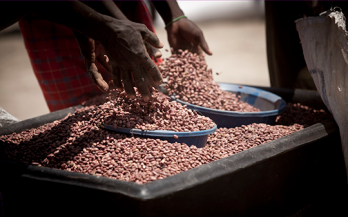The objective of this paper is to introduce the reader to the set of papers included in this Supplement reviewing methods and experience with Household Consumption and Expenditures Surveys to inform nutrition, and specifically food fortification programs.
This paper presents a picture of the general patterns of complementary feeding behaviours in urban Ghana. This study examined the multiple factors that influence the selection of foods for infants and young children.
The primary objectives of this chapter are to review methodologies used to date to evaluate the impact of food fortification programs in populations, discuss the strengths and limitations of these methodologies and resulting evidence, and provide recommendations on how such methodologies could be improved.
Accurate estimation of gestational age is important for both clinical and public health purposes. Estimates of gestational age using fetal ultrasound measurements are considered most accurate but are frequently unavailable in low- and middle-income countries. The objective of this study was to assess the validity of last menstrual period and Farr neonatal examination estimates of gestational age, compared to ultrasound estimates, in a large cohort of women in Vietnam.
The objective of this study was to conduct nutrition education based on a market-driven approach guided by the government, in order to develop an effective and feasible model for the promotion of iron-fortified soy sauce in China in one pilot site in the city of Jinhua, Zhejiang Province.
The objective of this paper is to analyze the content of documents used to guide mandatory fortification programs for cereal grains. Legislation, standards, and monitoring documents, which are used to confirm fortification, were collected from countries with mandatory wheat flour, maize flour, and/or rice fortification.
Rice fortification provides an opportunity to deliver essential micronutrients to populations that consume rice as a dietary staple. The objective of this study was to describe miller and public sector experiences and perspectives on rice fortification with micronutrients in Colombia and offer recommendations for policy makers.
The purpose of this study is provide nationally representative data on the prevalence of anaemia, vitamin A and Fe deficiencies among pre-school age children (pre-SAC) and non-pregnant women of reproductive age (WRA), and on vitamin B12 and folate deficiencies in WRA, and the influence of inflammation on their interpretation.
Docosahexanoic acid (DHA) is an important constituent of the brain. Evidence from well-designed intervention trials of the long-term benefits of increasing DHA intake during pregnancy has been sparse. This study evaluated global cognition, behavior, and attention at age 5 years in the offspring of Mexican women who participated in a randomized controlled trial of prenatal DHA supplementation.
Poor adherence to micronutrient supplementation often limits the effectiveness of public health programs. The objective of this study was to describe the predictors of adherence to preconception and prenatal micronutrient supplementation among women participating in a randomized control trial in Vietnam.










